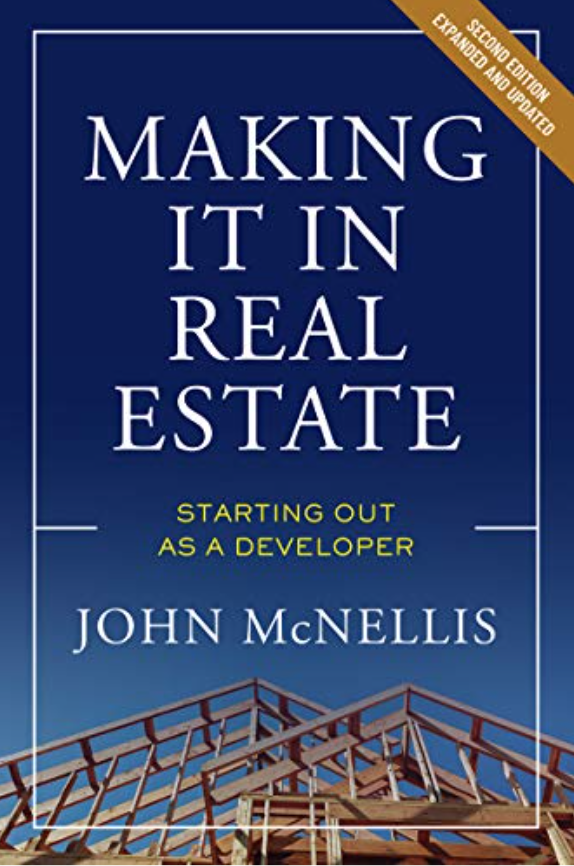The annual meeting of America’s foremost real estate organization, the Urban Land Institute, took place last week in Los Angeles. Its mood was as somber as an Irish wake where the host forgot the booze. Why? Because our national economy continues to sputter. In fact, it is sputtering so badly and so much equity is so desperate for yield, that quality real estate prices are again rocketing into the stratosphere. While it may be a brilliant moment to dump your entire portfolio and move to Costa Rica, it’s a bad time to run a real estate investment business and a terrible one in which to be a developer. Yes, apartment builders are going crazy snapping up dirt, but when all their dust settles, it may just be that they were simply crazy.
Ordinarily, the ULI is about as political as the Boy Scouts of America; in fact, it prides itself on staying above the fray. While some of its individual members may be highly politicized, the ULI isn’t.
Or wasn’t. Until our economic melt-down.
Before a breakfast audience of 5,000, Roy March, the president of Eastdil Secured, perhaps the most respected investment banking company in our business, flat-out urged the nation to adopt the Simpson-Bowles deficit-reduction plan. Why? Certainly not to solicit listings—there are few better ways to alienate clients than to talk politics. No, it was his frustrated response to a U.S. fiscal crisis that is leading the country to the edge of another recession in the short term and global irrelevancy in the long. Interestingly, no one in the audience booed March’s suggestion. Interesting because this assembly included any number of the top 1 percent of U.S. income earners, those who would pay more taxes if Simpson-Bowles were adopted.
The ULI’s studied reaction to March’s plea reminded me of a talk former U.S. Sen. Alan Simpson (the “Simpson” in Simpson Bowles) gave to an even more well-heeled audience this summer.
“America is the healthiest horse in the glue factory,” the Wyoming Republican said, comparing the United States to the problem children of Europe—Greece, Portugal, Ireland and so on. In a speech peppered with barnyard homilies, he outlined his bipartisan solution to our crisis, carefully explaining why spending cuts alone would never balance the budget, why everyone—retirees, unions, the military, even the rich and near rich—had to share the pain.
The gilded audience listened closely to his remarks. When he finished, there was no call for either tar or feathers. Rather, his listeners warmly applauded the man, if not all of his sentiments. The quiet conversations among his listeners after the talk indicated a willingness to pay more taxes if only the entitlements rat hole could be plugged.
Yet, three months after Simpson’s talk, his plan is no closer to adoption than a 14-year-old serial killer. Three months later and Occupy Wall Street, a movement that one might profitably ponder late 18th century France before dismissing out of hand, has taken to the streets—including those below the windows of the Los Angeles hotels where the ULI was convening.
At a ULI leadership function, I asked a hitter with the Real Estate Roundtable (the ULI’s political doppelganger) how matters stood in Washington, D.C. He said John Boehner himself is privately willing to compromise and that the majority leader would go along with a tax increase if only it were coupled with serious entitlement reductions. More than Nancy Pelosi and the left-wing extremists, he said Boehner’s real problem is with the 85 freshman Republicans who have signed Grover Norquist’s No New Taxes Loyalty Oath.
While it’s admittedly hard to argue economics with someone who would refuse to increase taxes by $1 in exchange for $10 in entitlements cuts, we need to help those who would—such as Majority Leader Boehner—because it’s our country (and our real estate markets) being held hostage. If only the Republicans in the maligned top 1 percent would publicly acknowledge what they privately admit—that no budget will ever be balanced without raising taxes on the upper middle class and the truly rich—and if they could publicly provide Boehner and the moderate Republicans the cover they need, something might break loose. The Republican 1 percent could take a page out of Starbucks CEO Howard Schultz’ political playbook and refine it by making it specific, by announcing that no Republican will receive any further contributions until he or she publicly endorses Simpson-Bowles.
Then, if the Democratic 1 percent could remind Pelosi that Medicare must indeed be reined in, that the retirement age for Social Security must be raised, that public pensions must bear some resemblance to those of the private world and that no Democrat will get another dime until he or she votes for Simpson-Bowles, we would have a start.
Simpson-Bowles isn’t perfect, but it has to be a very long step in the right direction because no one likes it, no one gets away scot-free.
Another big step in the right direction—that is, toward fiscal solvency—was taken last week by California Gov. Jerry Brown, and now Jerry also needs cover. He came out with his well-reasoned proposal to revamp California’s public-pension plans. As imperfect as it may be, Jerry’s proposal is far more constructive than we have any right to expect—or even hope—from a Democrat. To get this much-needed reform passed, a lot of Democrats will have to vote with Gov. Brown—a very difficult vote in the face of unrelenting union opposition. A less difficult vote if the Democratic 1 percent informs its elected officials that the bucks stop until the party rallies behind Jerry.
It’s time to rescue our horse from the glue factory before it’s too late, if not from civic pride than from enlightened self-interest.


